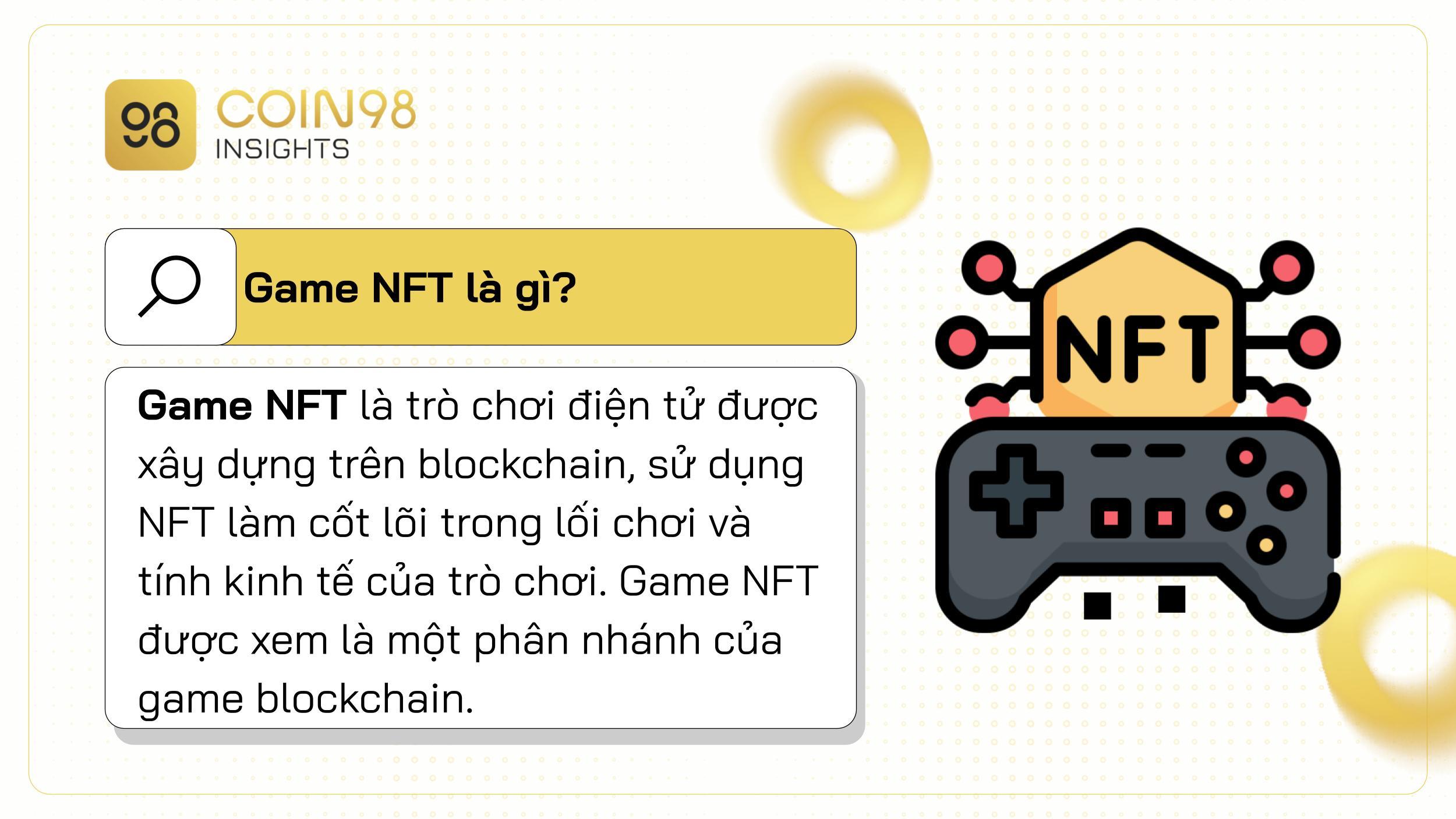NFT games, a subset of blockchain games, leverage non-fungible tokens (NFTs) as the cornerstone of their gameplay and in-game economies. These games emphasize the collection, buying, selling, and trading of unique digital assets, with NFTs representing in-game items like characters, virtual land, and other valuable assets. Unlike some blockchain games, NFT games don’t always deeply integrate decentralized finance (DeFi) elements or decentralized autonomous organizations (DAOs). An early example is CryptoKitties, a game centered around collecting and breeding unique digital cats represented as NFTs, but without complex Play-to-Earn mechanics or tokenomics.
Table Content:
 What is an NFT Game?Understanding the concept of NFT Games in the Crypto Market
What is an NFT Game?Understanding the concept of NFT Games in the Crypto Market
The Power of NFTs in Gaming
NFTs revolutionize gaming by granting players true ownership of digital assets, fostering interoperability across platforms, and enabling innovative monetization strategies.
True Ownership: Players possess verifiable ownership of their in-game assets, recorded on the blockchain, granting them full control and usage rights. This contrasts sharply with traditional games where assets reside on company servers, subject to the publisher’s control.
Uniqueness and Scarcity: Each NFT possesses distinct characteristics, ensuring no two are identical. This inherent scarcity contributes to their value and desirability within the game’s ecosystem.
Cross-Platform Interoperability: NFTs have the potential to transcend individual games, allowing assets to be utilized across multiple platforms and metaverses. This enhances their utility and liquidity, opening up new possibilities for gameplay and asset utilization.
 Game items can interact with multiple platforms. Image: Chainlink
Game items can interact with multiple platforms. Image: Chainlink
Furthermore, the economic models of NFT games often incorporate Play-to-Earn mechanisms, allowing players to generate income while playing. This has attracted a significant player base, particularly in regions where traditional gaming markets are saturated.
Why Ownership Matters in NFT Games
True ownership in NFT games is paramount, extending beyond financial value to encompass freedom and security. In traditional games, players invest time and effort in building characters and acquiring rare items, yet these assets remain under the publisher’s control. Server shutdowns or account bans can wipe out years of progress.
NFT games, however, leverage blockchain technology to grant players immutable ownership of their in-game assets. Each item or character exists as a unique NFT, allowing players to retain, trade, or sell them without fear of arbitrary intervention. This fosters a free market where players determine the value and fate of their digital possessions.
Financially, owning NFTs in games unlocks lucrative opportunities. Games like Axie Infinity and The Sandbox enable players to trade in-game items and virtual land on NFT marketplaces like OpenSea for profit. Players can even generate passive income by renting out their digital assets, transforming gaming into a sustainable economic activity. Platforms like Decentraland further empower players to create content and build communities, generating value beyond mere financial gains.
This true ownership fosters long-term engagement, incentivizing players to invest time and resources in building their digital asset portfolios. The scarcity and uniqueness of NFTs empower players to participate in a broader digital economy, blurring the lines between gaming and finance.
Exploring Popular NFT Game Models
NFTs play diverse roles within games, each with its own set of rules and player interactions. Different game genres utilize NFTs in unique ways, tailoring their design and functionality to enhance the gameplay experience. In-game items represented as NFTs facilitate trading and exchange among players, mirroring the exchange of items in traditional games but with the added benefits of blockchain technology.
Some NFT game designs enable players to profit directly from gameplay. These operational models aren’t mutually exclusive and can be combined within a single game to create diverse experiences, depending on the project’s tokenomic strategy.
Play-to-Earn NFT Games
Play-to-Earn games reward players with cryptocurrency or other valuable assets for their time and effort. The more they play, the more they can potentially earn. Axie Infinity, which gained immense popularity in 2021, exemplifies this model. Play-to-Earn games often incorporate tokenized rewards, distributed for completing tasks, achieving milestones, or ranking highly on leaderboards.
 Axie Infinity, a prominent Play-to-Earn game
Axie Infinity, a prominent Play-to-Earn game
In-Game NFT Games
In these games, players acquire NFTs through gameplay and can trade them within the game’s marketplace or on external NFT exchanges. This is a core mechanism for generating profit within the in-game NFT model. Examples of in-game NFT items include:
- Avatars
- Weapons
- Gloves
- Trading Cards
- Pets
 Projected NFT Game Market by 2028. Image: Mordor Intelligence
Projected NFT Game Market by 2028. Image: Mordor Intelligence
The Future of NFT Games: Growth and Potential
The NFT gaming market is poised for remarkable expansion. Mordor Intelligence projects the market to reach $820 billion by 2028, with significant growth driven by the Asia-Pacific region due to increasing interest in blockchain and NFTs. Countries like China, Japan, and South Korea are emerging as key hubs for NFT gaming, fueled by robust technological infrastructure and large player bases.
Major gaming companies like Ubisoft, Square Enix, and Electronic Arts are exploring and investing in NFT games to capitalize on the blockchain trend and tap into this burgeoning market. This not only brings financial resources but also lends credibility to projects, potentially attracting mainstream gamers to the blockchain space.
 Blockchain game growth compared to the traditional gaming market. Image: Xangle
Blockchain game growth compared to the traditional gaming market. Image: Xangle
The Play-to-Earn model’s potential to generate income for players continues to drive adoption, particularly in regions with saturated traditional gaming markets. While not a new concept, NFT games represent a significant opportunity for investors, developers, and players alike, offering a compelling blend of entertainment and financial potential within the evolving landscape of the crypto gaming industry.


